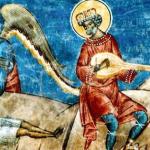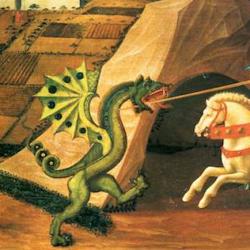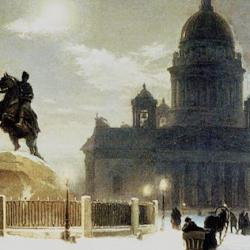Adam Kirsch can’t bring himself to say that poet Richard Wilbur, who died last weekend, was a Christian. In a 2004 New Yorker review, he comes close – recognizing religious themes and describing him as a “Transcendentalist.”
Kirsch recognizes that Wilbur’s religious vision infused his poetry: “the clean laundry of ‘Love Calls Us,’ in which the sight of sheets and smocks calls forth a secular prayer: ‘Oh, let there be nothing on earth but laundry, / Nothing but rosy hands in the rising steam / And clear dances done in the sight of heaven.'”
But why secular?
More generally, he sees a metaphysics behind Wilbur’s sense of metaphor: “metaphor is the capacity of things to be likened to one another; and for Wilbur this very capacity suggests that all things share the same essential nature. ‘I think that all poets are sending religious messages,’ he once declared, ‘because poetry is, in such great part, the comparison of one thing to another; or the saying, as in metaphor, that one thing is another. And to insist, as all poets do, that all things are related to each other, comparable to each other, is to go toward making an assertion of the unity of all things.”
Kirsch thinks it’s “up to the ‘temperament and faith’ of each reader to decide whether the golden world of Richard Wilbur’s poetry is the real world.” But to make that call, it’d be good to know what kind of faith Wilbur is calling us to.
Wilbur’s is a “dove-tailed world.” It’s a wonderful image, but the metaphor hints at more than the neat-interlocking of everything. It’s a “dove-tailed world,” the bright wake of glory left by the hovering Spirit, who gives the world its astonishing inter-fittingness, the Spirit we can see only in His works, only from behind, only as He eludes us.
For a discussion of Wilbur’s debt to Christianity and the Bible, see David Lyle Jeffrey’s essay. Jeffrey quotes these lines:
I love him that he did not in a rage
Once and forever rule me off the page,
But, thinking I might come to please him yet,
Crossed out delete and wrote his patient stet.
Crossed out delete? Emersonian Transcendentalist? I don’t think so.












